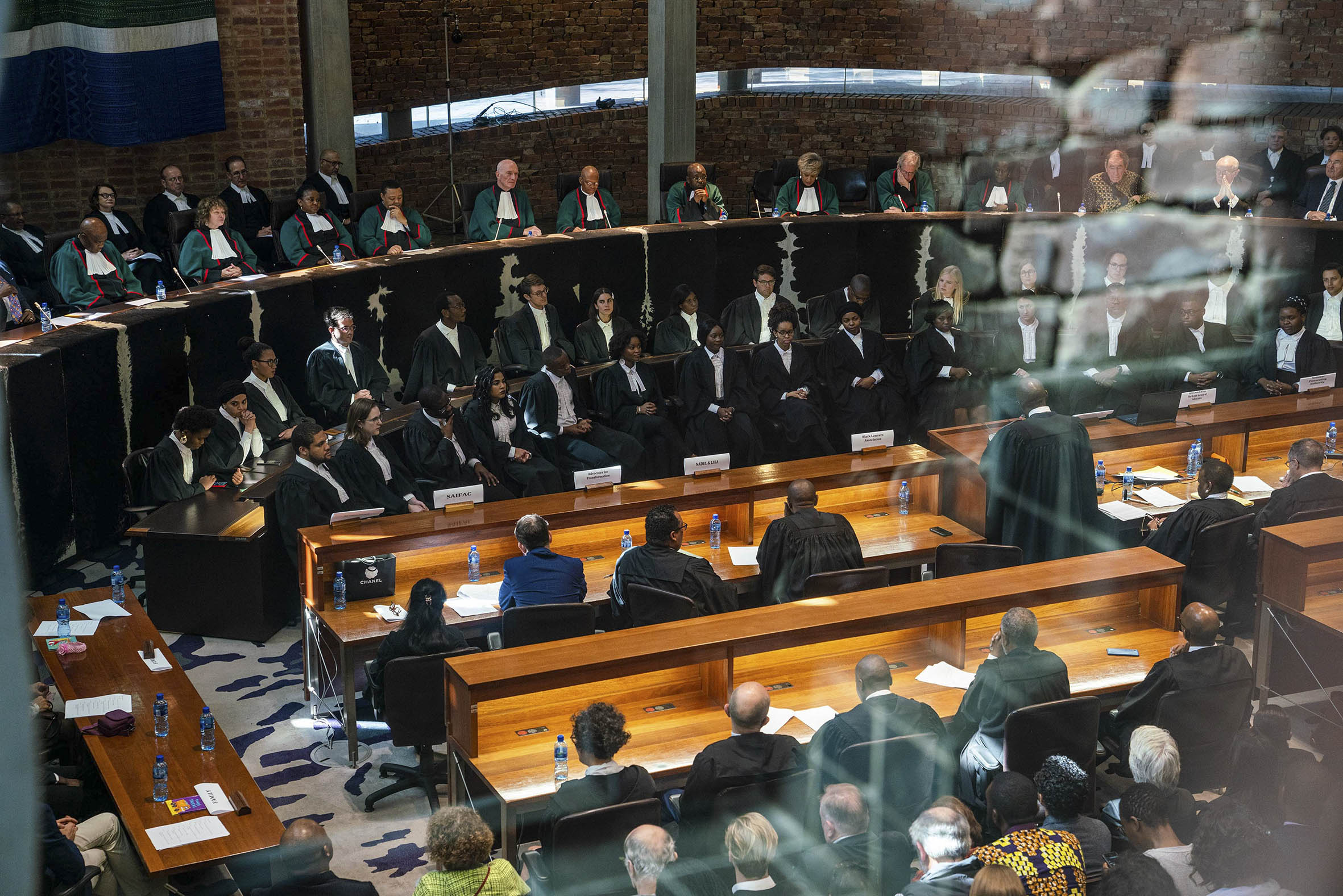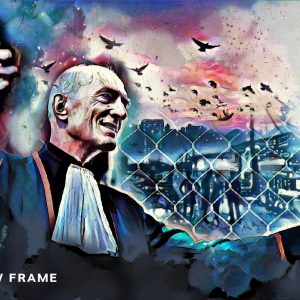Who will be democratic SA’s sixth chief justice?
The Constitutional Court has been without a permanent head since October. The JSC is finally conducting interviews with four judicial candidates as the public watches with interest.
Author:
31 January 2022

The Judicial Service Commission (JSC) is to start conducting its long-awaited interviews for the position of chief justice on Tuesday 1 February. Criticism of the delay is warranted, as South Africa has been without a chief justice and leader of the judiciary since October, when Mogoeng Mogoeng retired officially.
Public participation in the nomination of candidates was a welcome break from the norm. In an unusual but constitutional process, President Cyril Ramaphosa invited the public in September to nominate people for the position.
The panel set up to short-list candidates gave its report to Ramaphosa on 17 November, and he submitted four names to the JSC. All four accepted their nominations.
The appointment of judges is always political, especially in a country like South Africa. When racial and gender inequality permeates almost every institution, it matters who becomes a judge, hence the heightened public interest in who will become chief justice.
Related article:
The candidates vying for the job are Deputy Chief Justice Raymond Zondo, Constitutional Court Justice Mbuyiseli Madlanga, President of the Supreme Court of Appeal Mandisa Maya and Gauteng Judge President Dunstan Mlambo.
The interviews for a new chief justice come at a time when the judiciary is under sustained and concerted attack from senior politicians in the ruling party and opposition political parties. Physical damage has been inflicted on the Constitutional Court. In a declining democracy, this court has been a beacon of hope. It has made brave decisions against the political elite, who disregard their oath to serve the public, a recent decision being to imprison former president Jacob Zuma for being in contempt of a court order.
A truly independent judiciary is paramount; it is the cornerstone of our democracy. A judiciary that lacks independence and is biased towards political elites and those with money is undesirable in a constitutional democracy – and society does not want a compromised judiciary. Linked intrinsically to this is having an independent chief justice of measureless integrity, on and off the bench. This adds to the public’s interest in the JSC interviews.
Politics and the law
Politics have always been present. They were present in 1994 when Nelson Mandela faced the task of appointing the head of the Constitutional Court, as per the interim constitution. Apartheid and the judiciary were white and male at the time, so the men and women who would ascend to the apex court had to be representative of a new South Africa. They had to embody the values and aspirations inscribed in the Constitution, and commit to transforming the courts so all people had access to justice.
It is not surprising that Mandela handpicked and personally persuaded most of the first crop of these judges to take the job. These were exceptional lawyers and jurists. Many of them had dedicated their professional lives to fighting the apartheid state through litigation.
The appointment of judges has been streamlined since then. The process has become more transparent and is defined by the Constitution.
Related podcast:
We have had five chief justices of the Constitutional Court post-apartheid. The first was lawyer and jurist Ismail Mahomed. He became the first Black person to take silk in the Bar of advocates. Arthur Chaskalson took the reins in 2001, after Mahomed died in 2000. Pius Langa succeeded Chaskalson when he took early retirement, Sandile Ngcobo came after Langa, and Mogoeng Mogoeng took over from Ngcobo.
Mogoeng’s ascendence was not without controversy. Neither was his departure, after he took a pro-Israel stance.
Dikgang Moseneke was deputy to three different chief justices over a period of more than a decade. In My Own Liberator: A Memoir, Moseneke writes that “an intriguing tale is yet to be told as to why I was overlooked as many times and never became chief justice”.
It remains a mystery for Moseneke and us all, especially as Zuma appointed Mogoeng over him. What is perhaps not a mystery is that politics were at play. Not to cast doubt on Mogoeng’s abilities and independence, but there was no more deserving candidate than Moseneke at the time. It was a shock and for some, difficult to accept the snub.
Uncertainty and polarisation
While there was some level of public certainty and consensus in 2011 that Moseneke deserved to lead the judiciary and Constitutional Court, in 2022 we are without this certainty. The public are polarised as to who should become the next chief justice.
Madlanga and Zondo are senior judges from the Constitutional Court, but this will not be a two-man race. Maya is extremely efficient and Mlambo, the president of the busiest division in the country, is highly competent. Both have raised their hands to lead the apex court.
The seniority of Madlanga and Zondo will work in their favour. And perhaps being deputy chief justice gives Zondo an advantage, although he will know from Moseneke’s experience that his position does not necessarily give him an edge over the other candidates. But the Democratic Governance and Rights Unit (DGRU) at the University of Cape Town, which runs the project Judges Matter, cautioned the JSC that these justices retire in 2025 and 2024 respectively. The JSC will be interviewing again in three years’ time if it picks Madlanga or Zondo. It is certainly an issue the JSC will debate, and put to the candidates. Their looming retirements do not discount them from being appointed, but it does minimise their chances.
Related article:
This means Maya and Mlambo have a better chance on the longevity score. But neither is a justice of the Constitutional Court, presenting a legal quagmire. The sections of the Constitution that deal with appointing a chief justice presume that candidates are justices of the court.
The DGRU says this may be an anomaly, but not impossible to implement. “The drafters of the section may have had in mind that the chief justice would inevitably be appointed from among judges of the Constitutional Court, but they did not in our view prohibit the appointment being made from another court. Therefore, we are of the view that even though the appointment of Justice Maya or Judge President Mlambo might not follow the process set out in Section 174(4), this would nonetheless be constitutionally permissible.”
What most members of the public are interested in are the criteria in these interviews, whether the questions the JSC asks will determine if a candidate has what it takes to lead the judiciary. The JSC has to show the public that the process is transparent, and not full of theatrics and petty politicking. It is, after all, the appointment of the leader of South Africa’s most vital institution, the highest court and the protector of the Constitution.



